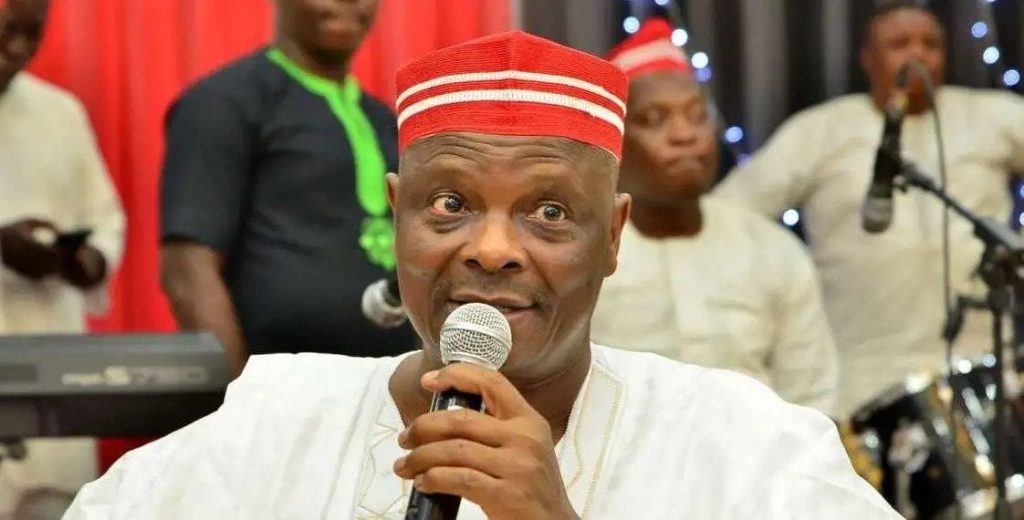The Kwankwaso-NNPP Divorce: A Clarification of Party Affiliations and Future Directions
The political landscape in Nigeria has been abuzz with discussions surrounding Senator Rabiu Kwankwaso’s intentions to join the ruling All Progressives Congress (APC). Dr. Ogini Olaposi, the National Secretary of the New Nigeria Peoples Party (NNPP), has stepped forward to clarify the situation, emphasizing that Kwankwaso’s move is a personal decision, representing the actions of his Kwankwasiya Movement rather than the NNPP itself. This clarification sheds light on the complex relationship between Kwankwaso, his movement, and the NNPP, highlighting the distinct identities and political agendas at play.
Olaposi’s statement underlines the fact that Kwankwaso’s declaration to join the APC vindicates the NNPP’s earlier stance. It affirms that Kwankwaso and his movement operated as a separate entity within the NNPP, rather than as an integrated part of the party’s structure. This distinction is crucial in understanding the dynamics of the situation and the implications for both the NNPP and Kwankwaso’s political future. Negotiations between Kwankwaso and any political party, including the APC, should be understood as occurring on an individual basis, representing his personal political ambitions rather than speaking for the NNPP.
The NNPP, according to Olaposi, is now free from the internal struggles caused by the Kwankwasiya Movement’s resistance and alleged anti-party activities. The expulsion of the movement allows the NNPP to focus on its own internal affairs and prepare for future elections. This period of internal consolidation is essential for the party to rebuild and strengthen its foundations after the turbulence caused by the Kwankwasiya movement’s presence and subsequent departure. The NNPP is now charting its own course, independent of Kwankwaso’s political maneuvering. The party remains open to future alliances, but these decisions will be made collectively by the party’s members, not dictated by the interests of a single individual or movement.
Olaposi clarified the contractual relationship between the NNPP and the Kwankwasiya Movement, stating that the Memorandum of Understanding (MoU) between the two entities expired after the 2023 presidential election. This contractual arrangement further solidifies the distinct nature of the two groups. The subsequent disagreements and attempts by the Kwankwasiya Movement to allegedly hijack the NNPP, as claimed by Olaposi, underscore the inherent tensions and conflicting interests that existed. This power struggle ultimately led to the expulsion of the movement, culminating in Kwankwaso’s decision to explore other political avenues.
The NNPP’s assertions regarding Kwankwaso’s diminished political influence highlight the changing political landscape. Olaposi argues that Kwankwaso’s actions have eroded his political standing, particularly in Kano State, where many of his followers have already aligned themselves with the APC. This suggests a shift in the political dynamics of the region, potentially weakening Kwankwaso’s ability to negotiate effectively with other parties. The NNPP’s view is that Kwankwaso’s political capital has depreciated due to his perceived betrayal of the platform that supported his presidential bid and the exodus of key members of his movement.
Looking forward, the NNPP remains focused on reorganizing its internal structure and preparing for future elections. The party has stressed the need for the Independent National Electoral Commission (INEC) to officially recognize the new executive body, led by Dr. Agbo Major, following a court-ordered convention. This formal recognition is crucial for the NNPP to move forward with its internal restructuring and establish a clear leadership structure. The party is determined to rebuild and strengthen its foundations, emphasizing its commitment to a collective decision-making process that prioritizes the interests of all its members. The NNPP is positioning itself as a party that values internal democracy and operates independently of the influence of individual political figures or movements.














